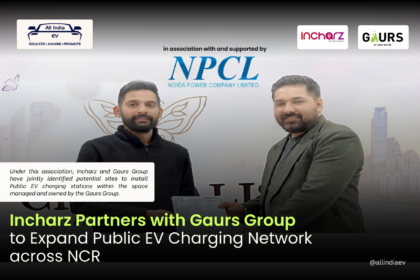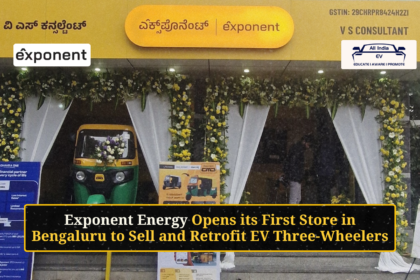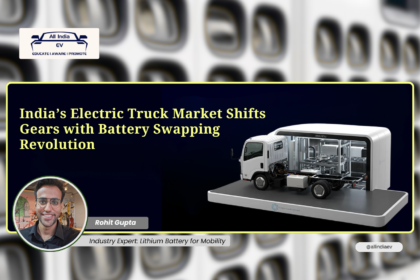Guest Articles

Incharz Partners with Gaurs Group to Expand Public EV Charging Network across NCR
New Delhi, 4th December 2025: Incharz (Servotech EV Infra Pvt. Ltd.), India’s leading charge point…
Exponent Energy Enters the Three-Wheeler EV Retail Business; Opens First Store in Bengaluru to Sell and Retrofit EV Three-Wheelers
Bengaluru, 01 December 2025: Exponent Energy, a Bengaluru-based energy-tech company, has opened its first Exponent…
Trust Doesn’t Ship Overnight: Why Ather Leads, and Ola Lags
The electric two-wheeler space in India is no longer a market of just hype and…
One Device, Every Protocol — The Universal Data Logger for Batteries, EVs & Energy Systems
"In India’s context (and globally), the shift to EVs and large-scale battery systems means two…
India’s Electric Truck Market Shifts Gears with Battery Swapping Revolution
"BEM proves that battery swapping can scale for heavy-duty ranges, while Montra reinforces platform interoperability,…
How the Grid Is Learning to Live With the Sun and Wind
Many electricity markets still reward steady generation over flexible response. That makes it harder to…
How A Plus Charge Is Transforming Northeast India’s EV Charging Ecosystem
"We are actively working to ensure a reliable charging point every 60 kilometres along major…
Beyond Identity: The Technical Backbone of Battery Aadhaar
"Battery Aadhaar incorporates advanced analytics leveraging artificial intelligence and machine learning algorithms trained on the…
Carbon Credit Boom: India’s Commercial EV Sector Poised for a Green Finance Revolution
India’s EV Market Set to Reach $31 Billion by 2030 with 24% CAGR; 30% Fleet…
Exponent Energy Enters Retrofit Business; Launches ‘Exponent Oto’ 15-Minute Rapid-Charging Retrofit EV Technology
India, November 7, 2025: Exponent Energy, a Bengaluru-based energy-tech company, has launched its ‘Exponent Oto’…












